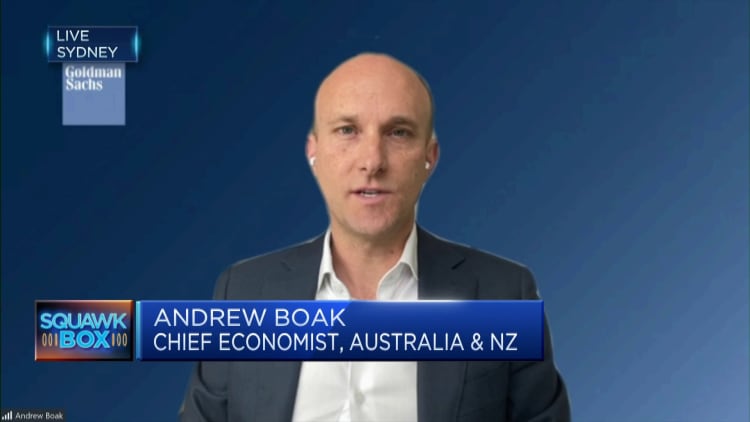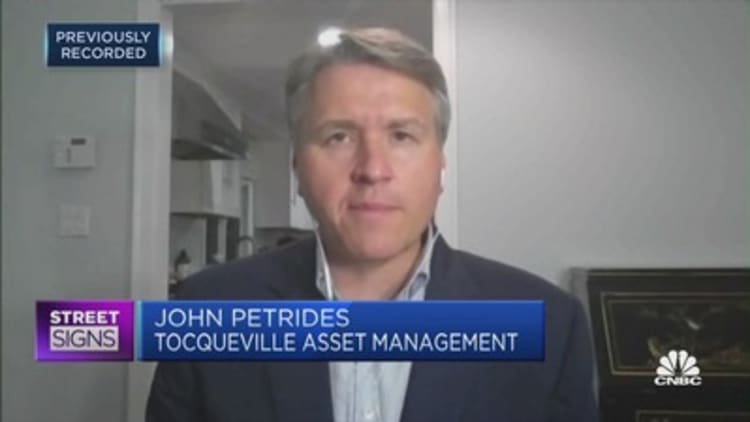Shares in the Asia-Pacific traded mostly higher on Tuesday as Australia's central bank raised interest rates again.
Mainland China's Shanghai Composite added 1.36% to 3,243.56 and the Shenzhen Component was 1.037% higher at 11,799.81 after officials signaled more economic support.
Japan's Nikkei 225 was about flat at 27,626.51, and the Topix index was 0.11% lower at 1,926.58. The Japanese yen weakened sharply and hit a 24-year high. It last changed hands at 141.55 per dollar.
The Hang Seng index in Hong Kong was trading about flat in the final hour of trade.
The Kospi in South Korea was up 0.26% at 2,410.02 and the Kosdaq gained 1.04% to 779.46.
In Australia, the S&P/ASX 200 pared gains to close 0.38% lower at 6,826.50.
The Reserve Bank of Australia raised rates by a half point to 2.35%, as expected by analysts polled by Reuters. The Australian dollar weakened and last traded at $0.6779 following the move.
MSCI's broadest index of Asia-Pacific shares outside of Japan was about flat.
On Monday, the People's Bank of China announced it would cut the foreign exchange reserve requirement ratio, or the amount of FX reserves that financial institutions must hold, to improve the ability of financial institutions to use foreign exchange funds.
Starting Sept. 15, the RRR will be 6%, down from 8%.
"This cut should help increase FX liquidity and thus lower depreciation pressure for CNY. While the actual impact on FX liquidity is small … this cut serves as a strong policy signal that the PBOC is uncomfortable with the rapid depreciation of the currency," analysts at Goldman Sachs Economics Research wrote in a note late Monday.
On Tuesday, the PBOC set the yuan's midpoint against the dollar at 6.9096, the weakest since Aug. 25, 2020, according to Wind Information.
U.S. markets were closed overnight for a holiday.
In oil markets, U.S. crude extended gains from the previous session, while Brent crude declined slightly.
— CNBC's Evelyn Cheng contributed reporting.




